Why every recreational judo player should compete by Todd Brehe
I went to my son's T-ball game the other day and watched twenty or more kids take whacks at the baseball and run in random patterns around the bases. My son is seven and all he really cares about is hitting the long ball. Fielding is completely optional.
At the end of most games, he always tells me the same thing. "Dad, no one wins these games. We always tie. It's boring Dad."
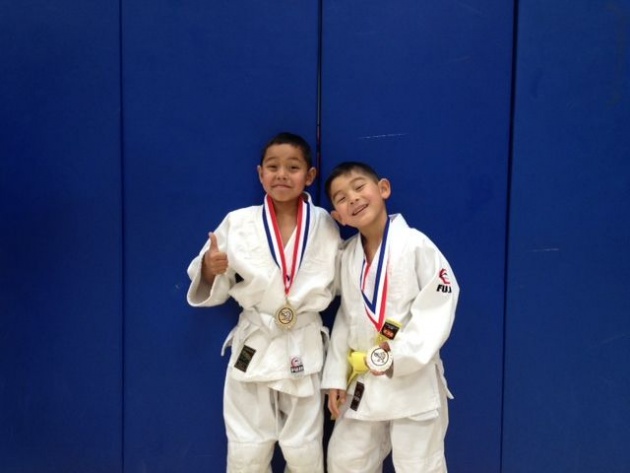
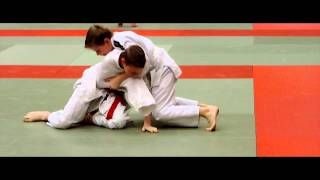
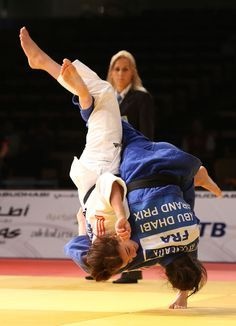
It's a new concept that wasn't in vogue when I was a kid. T-ball and other entry level sports don't keep score, don't have league winners, and don't have 1st, 2nd, or 3rd place trophies. Everyone gets the same generic award and the same end-of-season pizza party.
I've heard some of the academic theories for this philosophy. "It's better for young players to focus on the learning the game instead of winning and losing (as if those two concepts were mutually exclusive). There can be a lot of anguish associated with competitive sports for young players."
But I don't see it that way. In my experience, what's missing from many sports are coaches and parents who know how to teach kids an ethical, empowering framework for competing.
In the short time we've had our judo club open, we've witnessed a deep-seated fear and reluctance by many of our recreational athletes to fight in tournaments. On the chance that we do encourage these kids to participate in a competition, even a novice division, they've often built up such a strong fear that they struggle to function at all during a match.
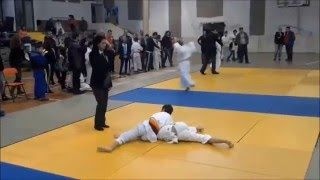
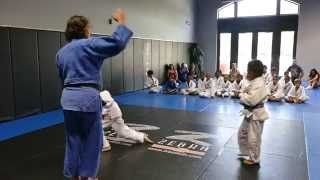
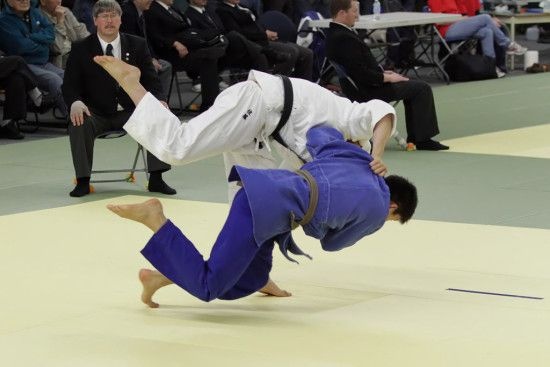
When you talk to these children and ask them what it is that they don't like about tournaments, they usually give an evasive answer such as, and "I just don't like to compete." Or their parents will answer for them and say, "I'm just afraid it will ruin Johnny's confidence."
It's very clear to us, that the child's fear and uncertainty relating to competition, has been gently instilled over an extended period of time, by the child's parents. It's interesting because the primary reason that parents bring their children to a judo club is to help them learn skills like self-confidence and mental toughness.
My personal belief is that competition is nothing less than beautiful. It's important, valuable, and a critical element of our society. Every child, during the course of her lifetime, must compete at home for attention, in school for grades, on the playground for friends, in the work place for advancement, etc. Why then don't we teach our kids better, more empowering philosophies and beliefs about competing?
One reason is that we haven't been taught very empowering attitudes about competing ourselves. Very few of us have been fortunate enough to experience that unique coach or leader who can outline and instill a positive philosophy about competition.
Another reason is that our society is so overwhelmingly in love with the winner, that there is a natural tendency to win at all costs. To the victor go the spoils. At Wimbledon, they only give one big dish, and while it's nice to be in the finals, Sports Illustrated really only cares about interviewing the champ.
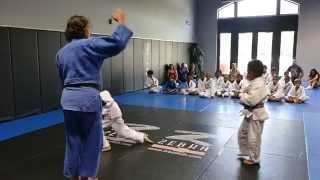

I'm no educator and I base many of my philosophies on what I've learned "in the trenches." So take what I say as another piece of data and not "the way it should be."
Here is the story Rich Riley and I tell our kids and parents. It doesn't work all the time but it works a lot of the time.
28666.jpgIn our program, we teach self-confidence, self-discipline, self-control, and self-respect. Our vehicle is the sport of judo and we consider the skills kids learn while practicing judo to be life skills. Theses skills are acquired as a result of an extended participation in our program. You don't learn them in a single season. (The Karate and Tae Kwon Do clubs are absolute 10th Degree Black Belts at marketing these ideas although I question their ability to deliver.)
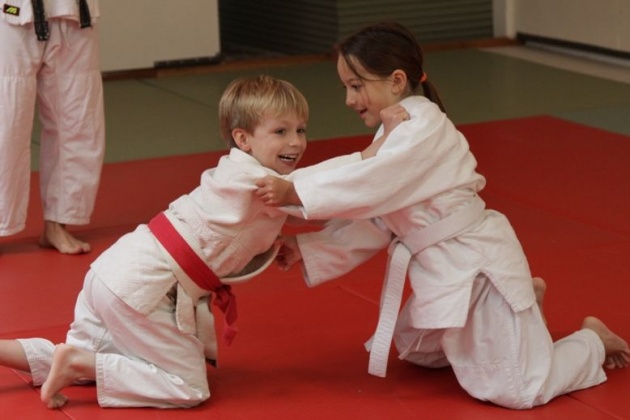
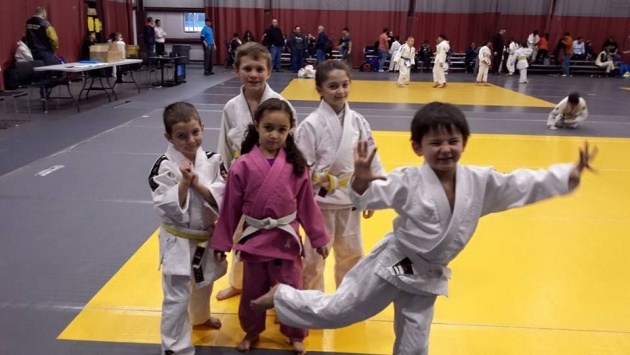
Anyway, the majority of our parents bring their kids to our Club to improve in these areas. One of our core beliefs is that competition is an outstanding means for improving self-confidence and mental toughness. Avoid competition and kids may be missing out on the real lessons judo has to offer.
That may seem counterintuitive given that kids often quit judo because of lousy experiences they have at tournaments. Yet you can usually trace these experiences back to parents, coaches, and family members, who so exclusively focus on winning, that their children learn to equate losing with failure. In many cases, losing for these children results in verbal and physical punishment. Is it any wonder why these kids hate tournaments?
The mantra that we repeat like a slow, heavy drumbeat to our kids is this: Forget about winning and losing. Of course you are going to strive to win every match. But give us your best effort, and try to perform the judo skills that we have been teaching you, during a match. If you try your best, in our minds, you won -- whether you got a victory or not. If you happen to winsuperon to the next round. If you happen to lose, bow respectfully and come off the mat -- without crying.
We make it very clear to our athletes, that if they fight a match and do the skills we have showed them, and still lose, it's our fault. It's our responsibility as coaches to figure out why they lost and help them improve. Of course as athletes grow older, this becomes a team process.
This philosophy does two things. It encourages kids to focus on something within their control--their own personal performance--and helps them ignore things outside their control--the referees, the draw, or the opponent's belt color. It also simplifies expectations and makes it easier for kids, especially the recreational athletes, to be successful.
I learned a valuable philosophy from my Dad. He helped me understand that competition is about testing yourself and helping your opponent test himself. Competition isn't about winning. Winning comes as a result of your preparation, your skill level, a little luck, and your attitude. The more you truly desire to fight the best athletes, all the time, and at every camp and competition, the better chance you will have of becoming a world-class athlete.
Don't think for a minute that disempowering beliefs regarding competition are limited to younger athletes. Some of our top judo players suffer from this "syndrome" right now. I have heard on numerous occasions, American athletes complain, "I got a terrible draw." This usually means that the athlete is lined up to fight someone who has previously been successful in the Olympics, the World Championships, or a big international/national meet.
Deep down, many of our best players are holding out for a "perfect draw" in which they can fight unranked or unproven athletes right up to and through the medal rounds. If everything goes right, they can win a medal without having fought any tough competitors.
But like cheap cologne, the competition can smell that form of fear a mile away. And this attitude negatively affects the outcome of many matches for our players.
You'll also find, that the most successful American judo players, want the "worst draw" possible. They want to fight the reigning Olympic Champion in the first round. They know if they can beat the Olympic Champ, the rest of the tournament will be cake. They absolutely crave competing in big matches against big time opponents. You'll find them unsatisfied, even when they win tournaments, if top competitors were absent.
1993 Dartford Judokwai Judo Event (Great Britain)Back to our recreational judo players. Judo competition is tough and challenging, physically and mentally. It's important to remember, however, that no one ever developed any real confidence without first having overcome a significant personal challenge. Parents who allow their children to avoid challenging situations, like a tournament, keep their children from developing the very skills they want their children to learn.
By teaching our children more empowering beliefs about competition, we can help them enjoy and benefit from the competitive process. By keeping the bar high and working with them to develop the skills needed to get over that bar, we can help them become more self-reliant, mentally tough, and self-confident.



